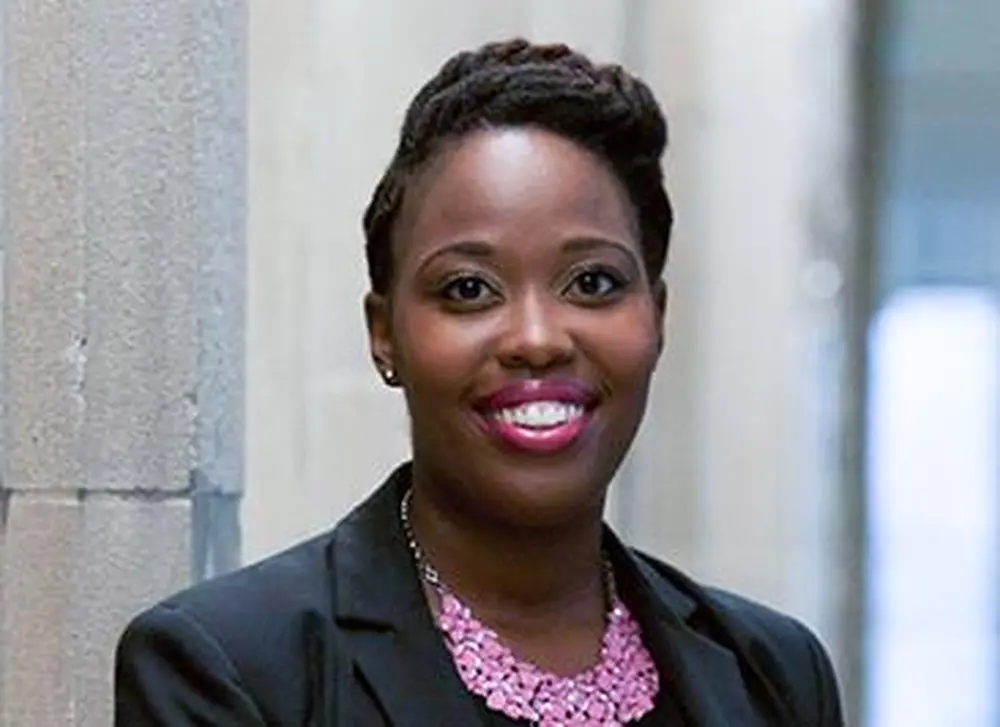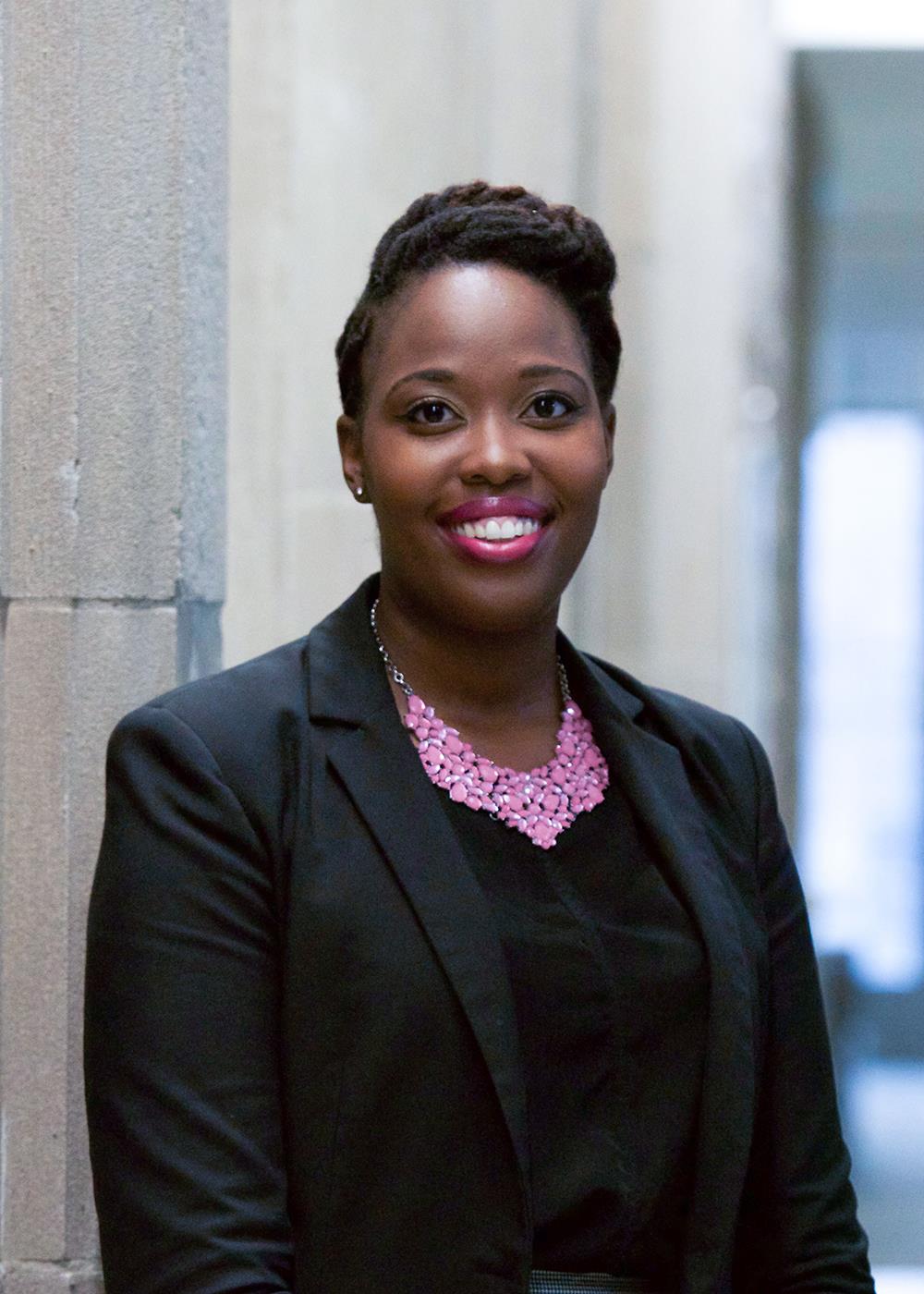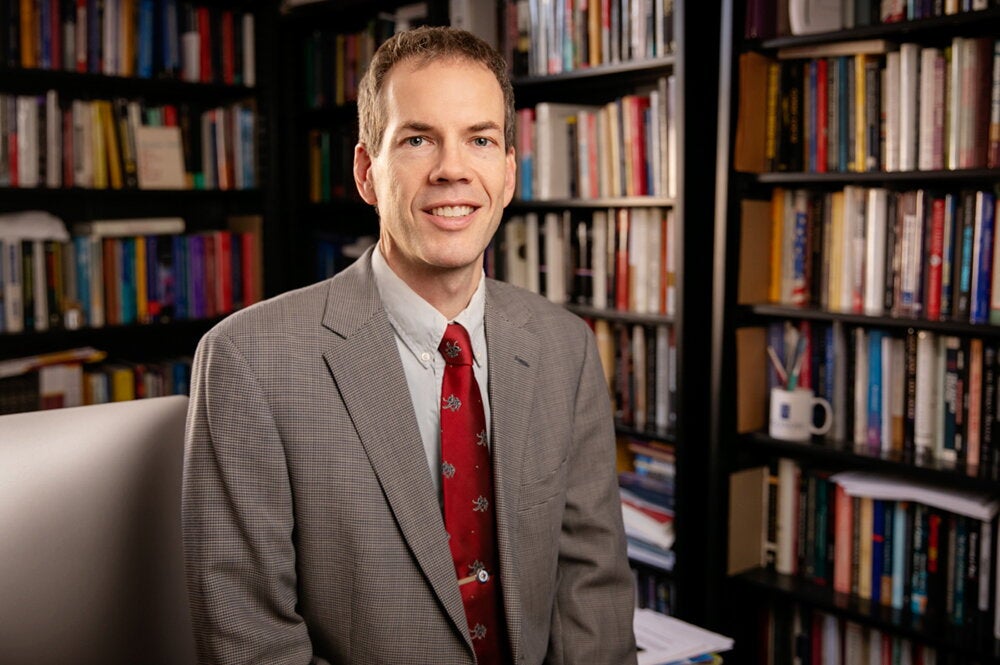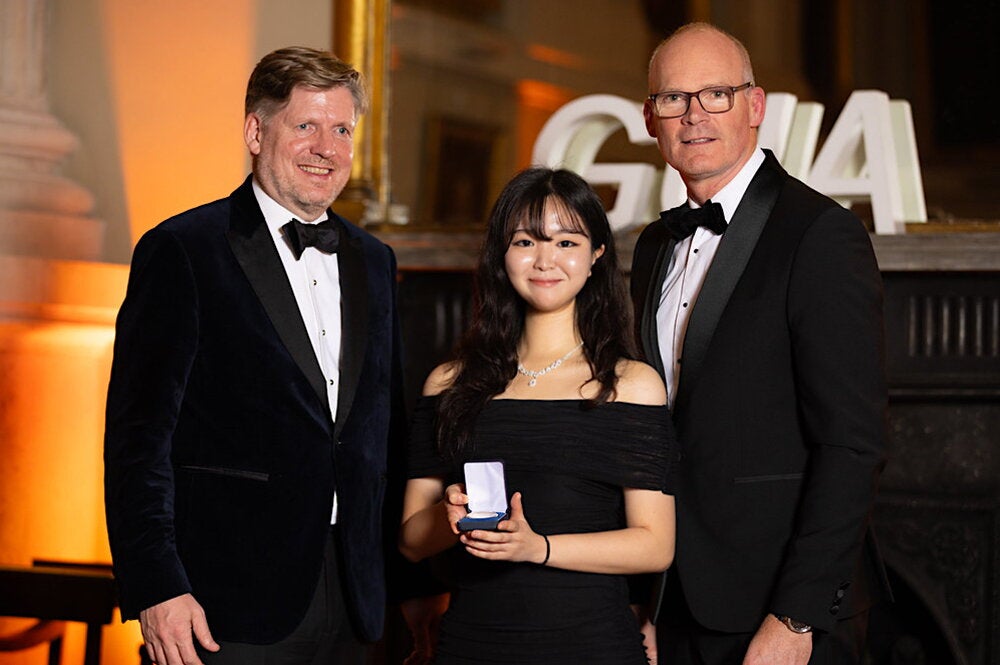

Morgan McClain-McKinney Limo said she will never forget her first trip to Africa in 2012, where people in Ghana were so welcoming. Because of her African-American heritage, they assumed she had a strong connection to the continent.
“As soon as I landed, people declared, ‘Welcome home!’” she said. “It was wonderful to go to another country where the people are so glad to have you.”
Since that trip, Limo (BA, ’09; MA, ’11; political science) has only deepened her ties with Africa, and this fall she left the United States to begin a two-year adventure in Guinea as a Foreign Service Officer for the U.S. Agency for International Development (USAID).
Guinea, a small country on the west coast of the continent, was ground zero for the Ebola outbreak that struck Africa in 2013, stirring fears around the world.
In December of 2013, Ebola took its first victim in Guinea—a two-year-old boy, who contracted the disease from bats after playing near a hollow tree where a colony of them lived. Although Guinea was declared Ebola-free in December of 2015, its health system is still trying to put the pieces back together with the help of people like Limo.
Guinea is Limo’s longest overseas assignment to date, but it is only the latest in a young, but illustrious career in international development. Her wide-ranging work around the world on behalf of health, education, and economic development has earned her a 2017 College of LAS Outstanding Young Alumni Award.
Limo grew up in Chicago’s southern suburb of Park Forest and got her first taste of international travel when she received a trip to Paris as a high school graduation gift. Coming to the University of Illinois in 2006, she set her eyes on pre-law but was soon drawn to the international studies track within in the Department of Political Science.
Then, after receiving her bachelor’s degree in 2009, she spent a year working at the State Department in Washington, D.C., in the Bureau of International Organization Affairs, supporting the Office of the United Nations Educational, Scientific, and Cultural Organization (UNESCO) Affairs.
She said she learned a lot about how the United States “articulates its policy decisions on the global stage,” but she also found the process quite weighted down by “bureaucracy on top of bureaucracy.” So she pivoted from her original plan of working on multilateral foreign policy and turned her gaze to USAID, which implements U.S. foreign policy and development priorities on the ground.
“I wanted to not just discuss how to get more children reading, but to be involved in programming, which actually included going out to the field, training teachers, and giving out books,” she said. “I wanted to be on the front lines.”
After returning to Illinois to get her master’s degree in 2011, she returned to D.C. to join the Bureau of Legislative and Public Affairs in USAID. Within a year, she found her way into the Africa Bureau because she had been fascinated with the continent ever since taking a Pan-Africa course with Merle Bowen, U of I professor of African American studies (then, a political science professor).
What followed were numerous short-term assignments in Africa, including travels to Ghana, Kenya, Ethiopia, South Africa, and a six-month stint in Kenya in 2014. She also said it was eye-opening to see the kinds of assumptions she brought with her to Africa. She recalls talking to one fisherman who she thought may be interested in participating in a program that helped fish farmers get their product to market.
“I asked him why he just caught a few fish per day, instead of building a team to catch more fish and sell it to market and then buy a bigger boat,” Limo explains. “But at every level, his response was, ‘Why would I do that?’”
When Limo explained that in America people work hard to build up their businesses and then end their life enjoying retirement, the man pointed out that all he has to do is catch a few fish every morning and then rest the remainder of the day. His retirement comes in daily doses.
“The logic model we use for success is not the logic model that other folks use,” she said.
Among Limo’s many assignments, she worked as a program advisor for the President’s Power and Trade Africa Initiatives, with an initial focus on six countries. Some of these countries had only enough electrical infrastructure to reach 5 percent of the population. The obstacle, she said, was not just in generating power; it was also in transmitting power to areas where the infrastructure was in disrepair.
However, she came across creative, non-traditional solutions, such as when she visited a school that ran a U.S. government-supported biofuel program in an urban settlement of Nairobi, Kenya. The school was built for 200 students, but it squeezed in 2,000, and there were only 10 latrines for all of them.
Being an Illinois alum from the cornfields of the Midwest, Limo naturally connected biofuel with cow manure, so she was stunned to learn that an enterprising man had created a program to convert human waste from the school’s 10 latrines to energy.
After Power Africa, Limo managed follow-on support for the President’s Young African Leaders Initiative, which regularly brought 500 to 1,000 young African leaders to various universities in the United States for six weeks. (U of I sponsored one such group in 2016.)
According to Limo, the need to develop young leaders is great because it is projected that by the year 2030, half of the African population is going to be under the age of 25. As an example of a young-leader success story, she cites a program, Soronko Solutions, which goes by the slogan, “Tech needs girls.” A woman from Ghana started this computer coding training camp for girls up to ages 15 or 16 in a country where women’s education in non-traditional fields is low priority.
Limo’s husband, Mike, is from Kenya, and they just married in June of 2017, so many colleagues still know her as Morgan McClain-McKinney. Together, with their three-year-old daughter, they have begun a new life in Guinea, a country that held its first-ever democratic election in 2011. Now that the Ebola outbreak has been controlled, she said, “It’s all about rebuilding systems that were decimated by the disease.”
According to Limo, many people in Guinea were so afraid of catching Ebola at clinics that they didn’t seek treatment for other diseases, such as malaria and cholera, exacerbating health problems.
But Limo doesn’t really see her service in Africa as work. As the slogan goes: “If you do something you really love, you never have to work a day in your life.”
“I feel that that applies to me,” she said. “My colleagues work long hours in challenging places to make sure people have access to opportunity and basic human dignity. I’m committed to doing that as long as I can.”


